
Pam Trefler
Founder
In 1997, Pam Trefler was a high school math teacher at Dorchester High School. She worked as a student teacher while finishing up her graduate program at UMass Boston—it was during this time that she became profoundly aware of the extent of the inequality in public school education in the greater Boston area.
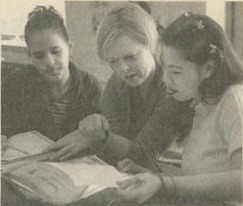
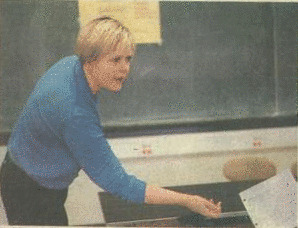
This same year, Alan and Pam formed the Foundation—with the goal of focusing on inner-city high schools. To this end, the brand-new Foundation made its first contributions to the Academy of Public Service (APS) at Dorchester High School (DHS)—a failing school at the time.
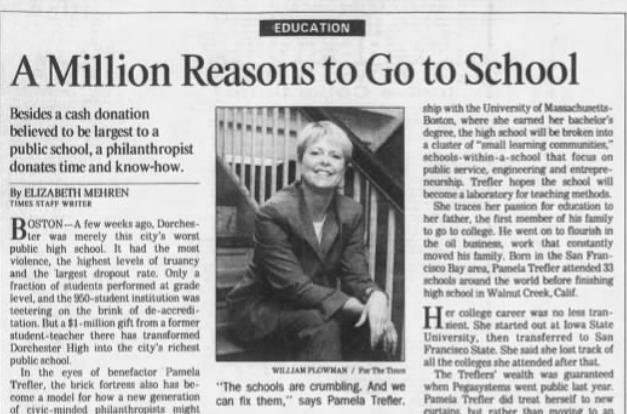
With this investment, APS became a school-within-a-school program aimed at grades 10-12. It introduced students to hundreds of careers in public and community services through internships, inspirational speakers, mentors, university workshops, and a summer job component. The APS also prepared students for higher education: 93% of participating students went on to college, a technical school, or a community service agency, such as City Year or Americorps.
The Foundation’s contribution to DHS was also the beginning of many partnerships—some of which are still current grantees—that would continue to be integral parts of the Foundation’s work for decades to come. In this way and many more, the initial grant set the tone for what the Foundation would become.

In 2001, the Trefler Foundation took its first step outside of the Boston Public Schools system by helping fund YearUp. Considered by Pam to be the “missing piece in the puzzle of student success,” YearUp helped guide students who struggled with traditional pathways to college. After-school support was another piece of this puzzle. Partnerships with Boston Partners in Education helped support tutoring for Dorchester High School students, along with Summer Search—a networking and mentorship program that aims to dismantle systemic barriers to education and economic equity among underserved populations. These beyond-the-classroom programs and approaches helped create a constellation of holistic student support that empowered inner-city youth and created clear paths to future success.
Pam Trefler had seen firsthand the impact that good teachers could have in public schools. But she also saw the challenges they faced entering an unfamiliar schooling environment for the first time—not all teachers were prepared to the same degree, and the effects of that lack of preparedness could be significant. In the early aughts, the Foundation shifted its focus to teacher preparedness initiatives.
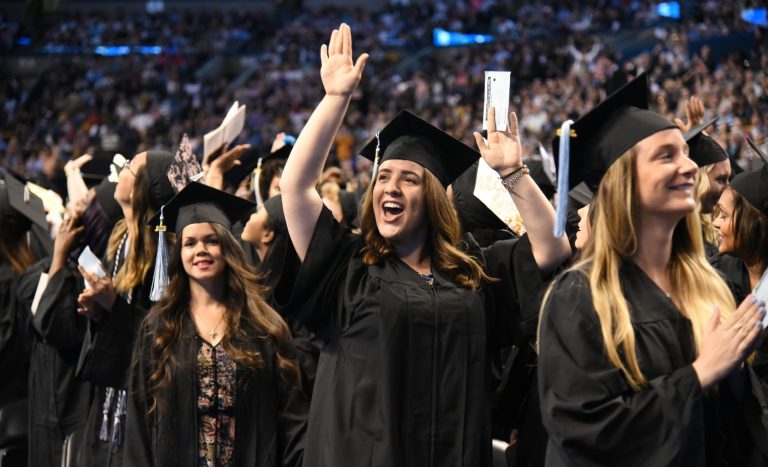
Working in partnership with University of Massachusetts– Boston (UMass), the Foundation funded a program to help aspiring UMass grads get the support and training they needed to have a successful inner-city teaching experience, such as that at Dorchester High School.
Well-trained teachers were clearly an essential piece of the puzzle for student success, but the Foundation recognized that this was not the only area of the student experience in need of reform. For the Trefler Foundation’s first gift of 2000, the Foundation supported an initiative with Cambridge College that would allow YearUp students to earn college credits. “We recognized Cambridge College as a place that could offer a college education to students who didn’t have the option or opportunity to go through a more traditional route,” Pam Trefler says of that program. With class offerings at night and on weekends, requiring only small blocks of time that could more easily fit into a busy schedule, this program removed barriers to earning degrees often experienced by students from lower-income backgrounds.
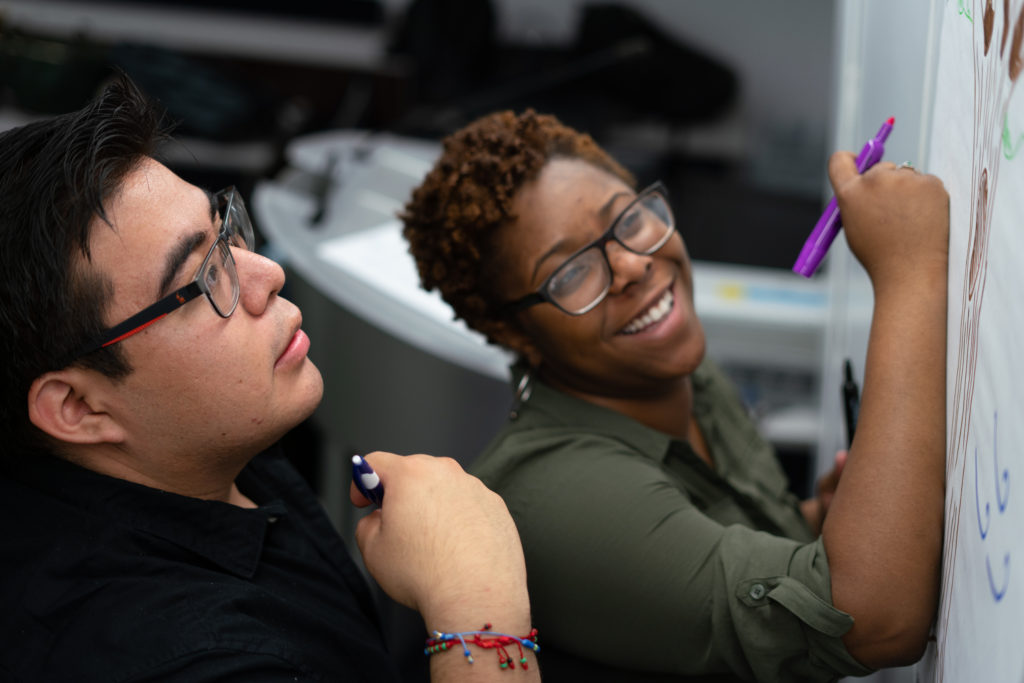
As a board member for Cambridge College for 8 years, Pam had become acquainted with YearUp founder Gerald Chertavian. This chance meeting went on to become the basis for several Trefler-supported initiatives. Pam quickly recognized Gerald Chertavian as a like-minded leader who believed that nonprofits could (and must) grow through business-like financial management. This flourishing partnership also reinforced the Foundation’s long-standing belief that future grant relationships could come from anywhere. Deeply ingrained in the community, the Foundation’s leadership was able to forge relationships with local area leaders and support the best programs even in their infancy. One such program was the Center for Teen Empowerment (CTE), whose then leader Stanley Pollack made a significant impression on Pam. “He has always understood his mission, and how he was going to get there,” she says. “What he was able to do to reduce gang violence was astonishing.” With a focused approach and a deep understanding of the issues facing local youths, CTE was able to reduce violence significantly in just a few years’ time.

Some of the roadblocks to student success are less visible than others—and beginning in 2009, the Foundation made the decision to look outside the Education space to identify and meet those challenges. Informed by her time working in schools, Pam recognized that student performance dramatically declined when students are facing food insecurity at home. The Foundation’s approach changed, zooming out to address issues facing the entire community and beginning to fund organizations that provide health and wellness services to students who may be facing hunger throughout the school day. “If you’re teaching class at 7:25 in the morning, you’d better bring food because your students are hungry,” Pam recalls advising public school teachers in the city.

In 2007, the Foundation underwent another critical shift when Pam was diagnosed with cancer. The personal experience of navigating a complex and arcane health system as a patient opened Pam’s eyes to the vast inequity of care. “As I went through one and a half years of brutal cancer treatment, it gave me the opportunity to think about this disconnect. If this was so hard for someone like me, with all of my privilege, money and education, what on earth must it be like for someone who doesn’t speak English, or doesn’t have access to fancy doctors?”
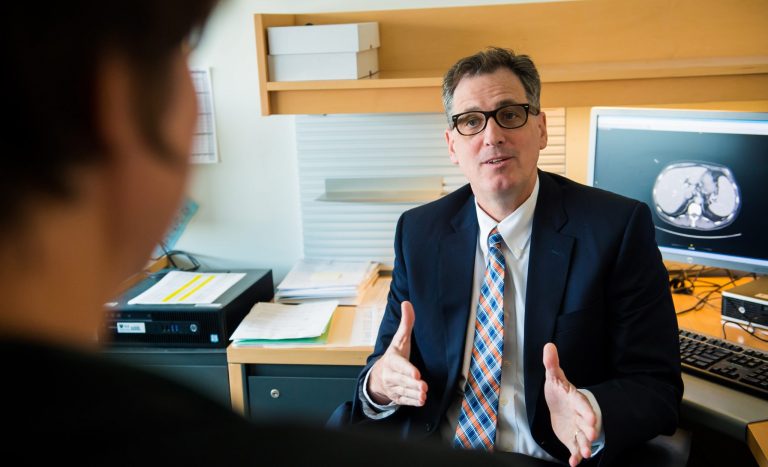
For Trefler’s first gift of 2009, the Foundation partnered with Massachusetts General Hospital (MGH) to fund colorectal cancer research.
From this gift, an ongoing relationship blossomed between the Foundation and Massachusetts General. At the time MGH had a small, fledgling Cancer Patient Navigation program aimed at helping underserved community members in the nearby city of Chelsea gain access to cancer screenings and education. With support from the Foundation, the program was able to expand significantly, making a much larger impact on the community and increasing the footprint of this outreach.
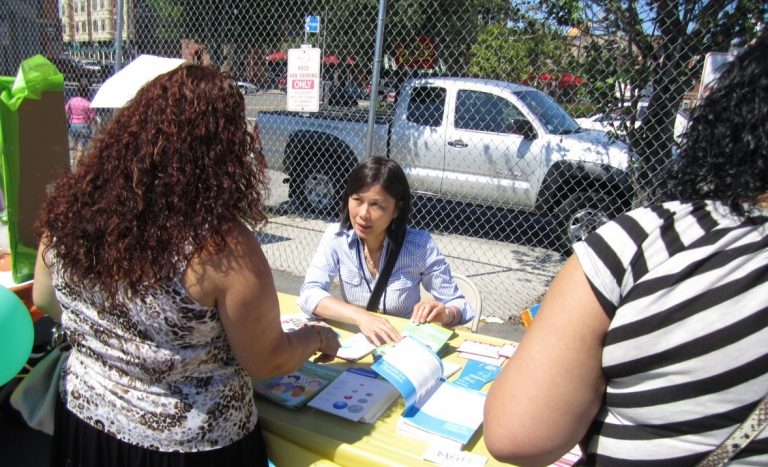
Shortly after, the Foundation targeted Chelsea again, stepping outside of Boston to address the needs of Chelsea’s population of immigrants and low-income families. In 2015, the Foundation became involved with the MGH Healthy Chelsea Coalition—an initiative focused on healthcare, food access, exercise and wellness in the community. The Healthy Chelsea Coalition placed emphasis on both traditional and non-traditional forms of healthcare, recognizing the importance of access to fresh, nutritious food in a food desert, and how lack of public transit could adversely impact health for many communities.

In 2012, the Trefler Foundation expanded its reach beyond Boston in the biggest way yet—by supporting a school over 8,000 miles away. Through a friend, Pam was introduced to the Ouko family in Kenya. Students at the Dr. Robert Ouko Primary School in the village of Koru faced vast challenges, but in spite of the geographical distance, many of them were the same as those that the Foundation had helped address at schools in Boston. A lack of physical space and resources for textbooks limited what students could learn, so the Foundation awarded a grant to provide e-readers to the school.
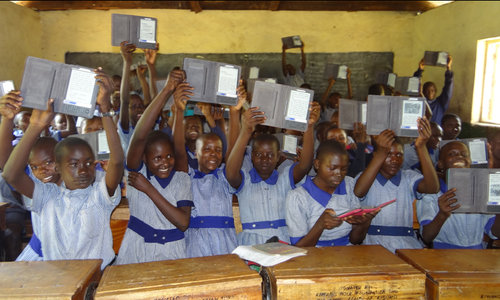
With a near-limitless capacity to hold educational materials, students were able to access more up-to-date information on their e-readers without sacrificing space in their limited schoolhouse. After the e-readers arrived, school enrollment leapt from 580 to 750 students.
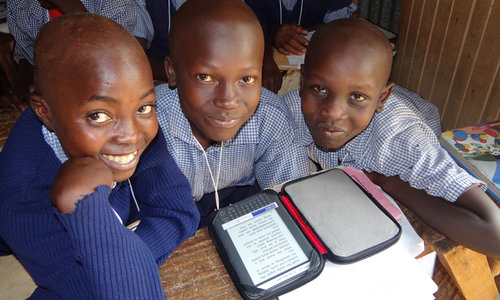
From there, Pam recognized the issue of food insecurity plaguing the students in Kenya, just as it had in Dorchester. With the Foundation’s support, the Dr. Robert Ouko Primary School implemented a school lunch program to help students get fed and therefore focus better during their day.
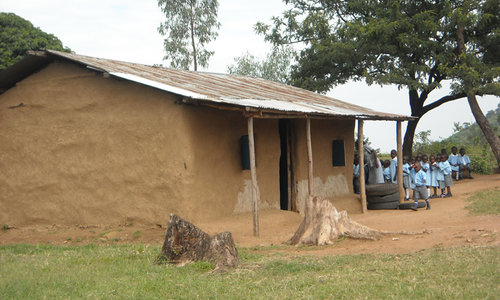
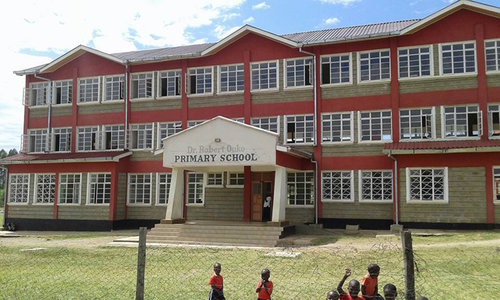
With a modest investment, the school was able to undergo a renovation that added more space and solidified the structure, growing to a 3-story building with a multitude of resources and amenities.
In this time period, the Foundation continued to look for ways to support health initiatives throughout the community that could have a vast, holistic impact on local populations. Working with the Kraft Center for Community Health, Trefler was able to grow MGH’s Cancer Navigator program to serve even more communities with greater access to guidance and resources. This broader definition of health led the Foundation to fund community-based organizations and initiatives such as the Dimock Center’s Road to Wellness 5k, teaching kitchens at the Urban Farming Institute, and the collective Mattapan Fitness Initiative, and others, while continuing to support cancer research and broaden health equity/access efforts.
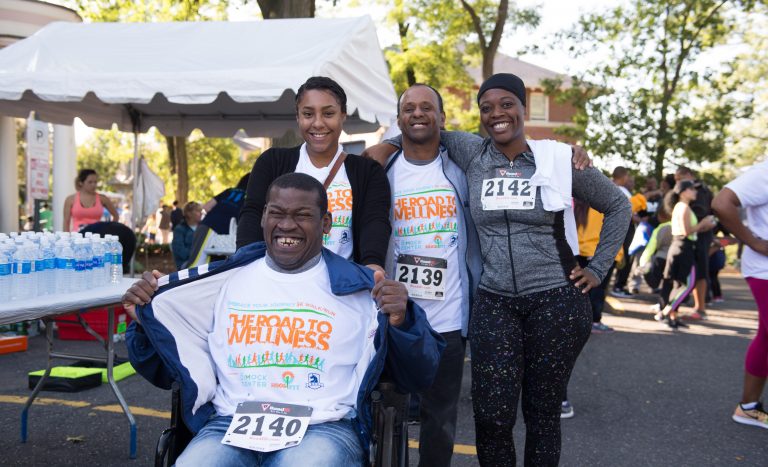
In spite of the increased focus on the overall wellbeing of these communities, Education remained a special area of interest, with teacher preparation efforts still going strong.
The Foundation had spent the preceding decades working to reform and reimagine healthcare—but in the face of COVID-19, a more targeted, rapid response was required. “When COVID came along, we did exactly what we’ve always done. We asked ourselves, ‘What is the best way to spend our money, what’s going to be the most effective thing to do, and what are the things that others aren’t going to do?’” explains Pam. Because of its small structure, the Foundation was well-equipped to respond quickly and deftly to the challenges at hand. Expedient funding to efforts like the large award to the MGH Emergency Room’s COVID-19 response units and UMass Boston’s RESPOND program put early funds in the hands of those on the front lines where they could do the most good.
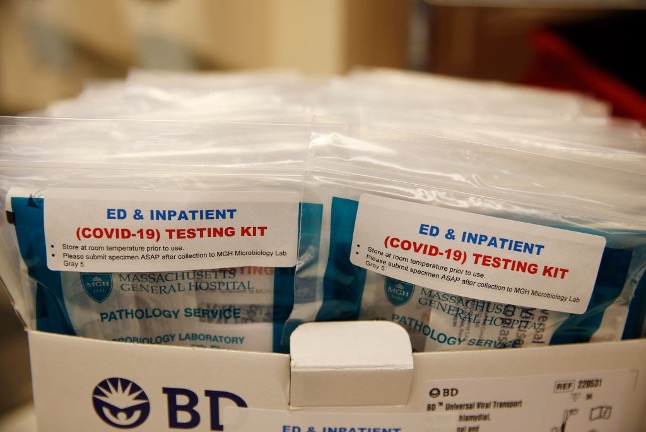
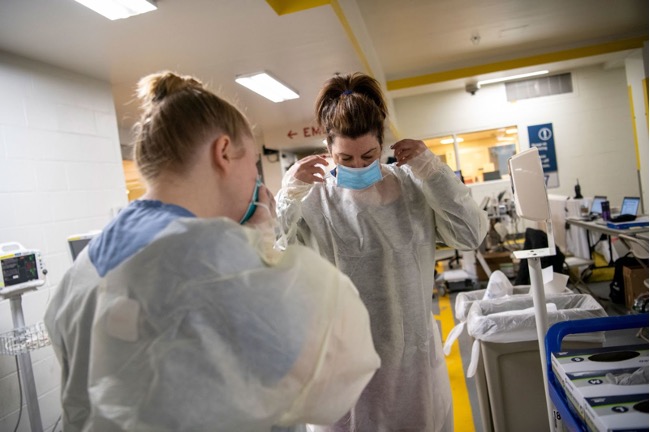
The Trefler Foundation’s historical experiences and lessons learned also helped address another important repercussion of COVID: schooling disruptions. Mentoring programs that helped students transition to at-home learning, as well as the innovative Community Learning Collaborative’s Pod Learning initiative, offered safeguards against educational backsliding during this tumultuous time.
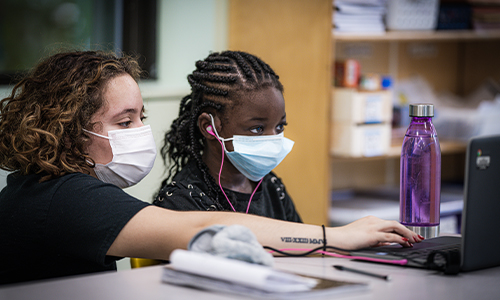
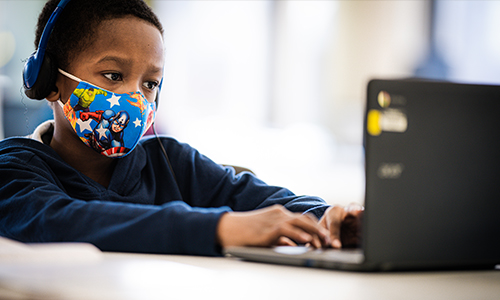
In less than a week after school closures, the Foundation was able to put funds and resources in place to support the students who had the most to lose from the switch to at-home schooling. “The challenge of COVID was unique, but we responded in keeping with our approach from the beginning,” Pam says.